
Nº5
CULTURE
CHANEL
The N°5 CULTURE CHANEL exhibition was held at the Palais de Tokyo in Paris, as part of the museum's Guest Program in 2013. This exhibition, curated by Jean-Louis Froment, aimed to decipher the iconic Chanel No. 5 perfume by revealing its connections to the era of its creation and the avant-garde movements it spanned.
The exhibition featured a diverse collection of artworks, photographs, archives, and objects that showcased the inspirations behind Gabrielle "Coco" Chanel's world and the perfume's creation. It included works by artists, poets, and musicians who were friends of Chanel, such as Jean Cocteau, Pablo Picasso, Guillaume Apollinaire, Igor Stravinsky, and Francis Picabia.
Admittedly aesthetic wireframes for this particular client:
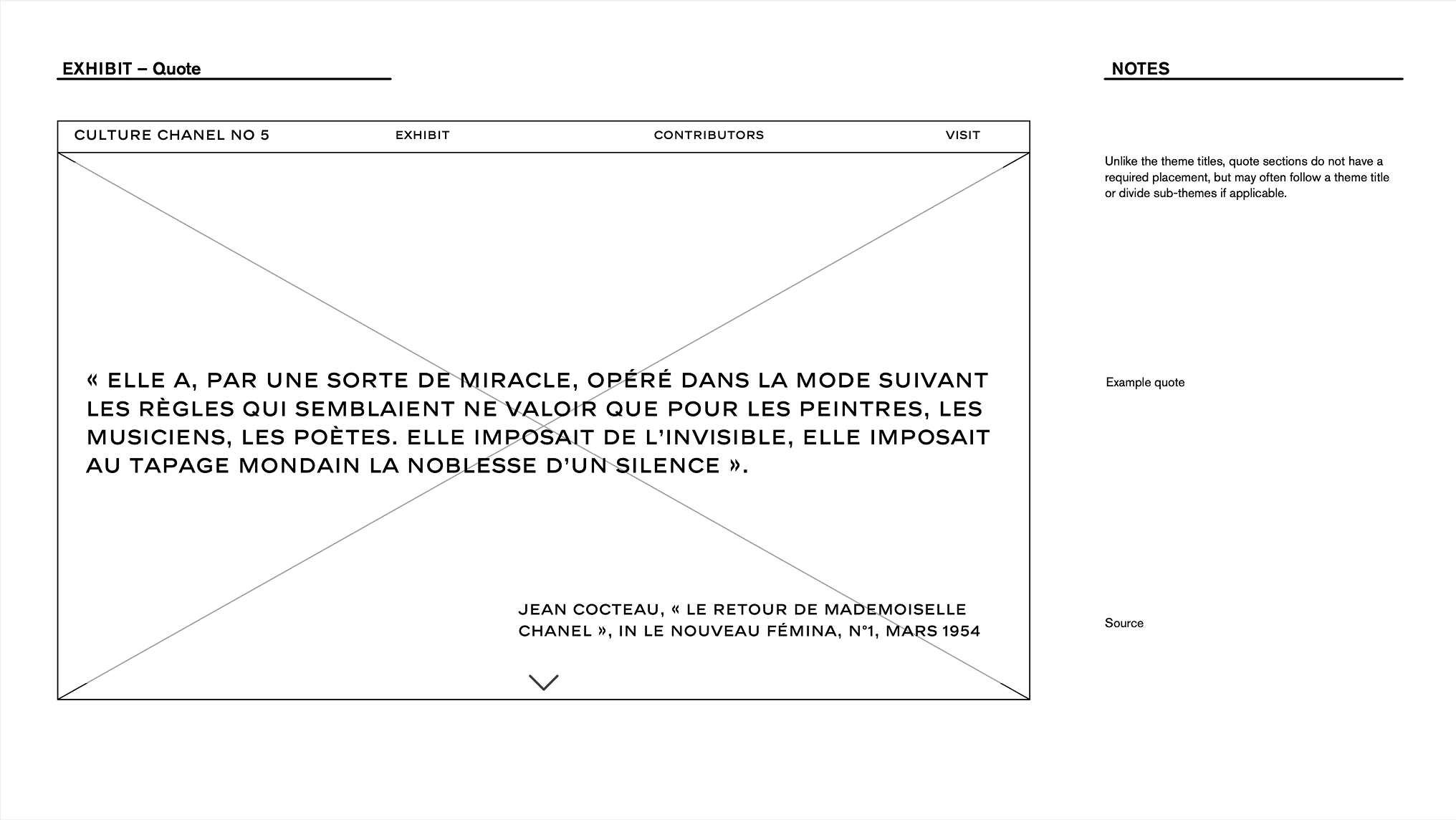
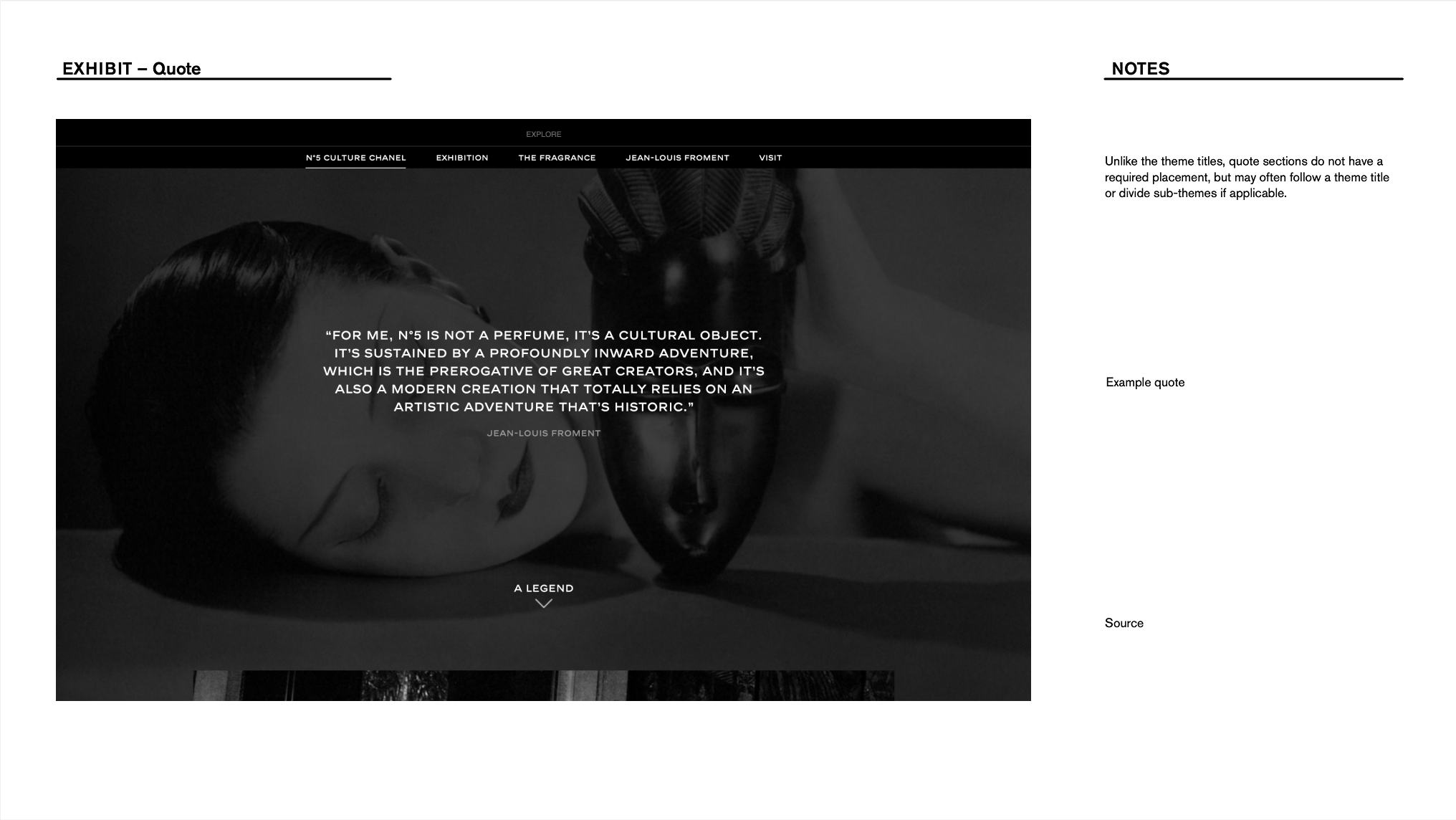


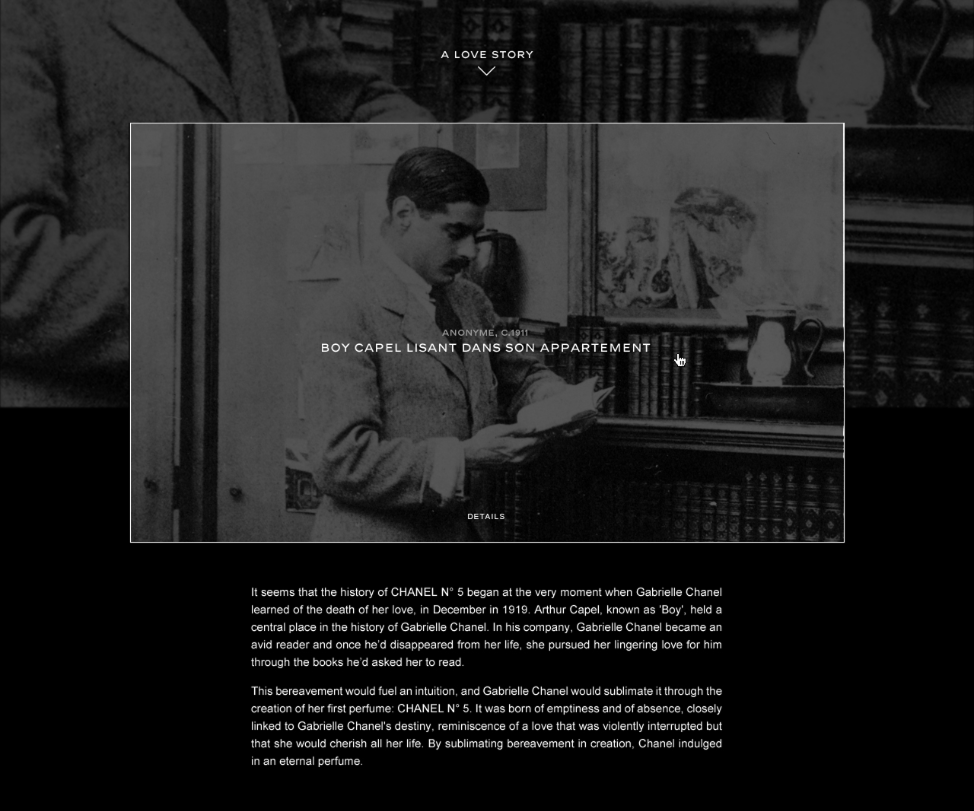
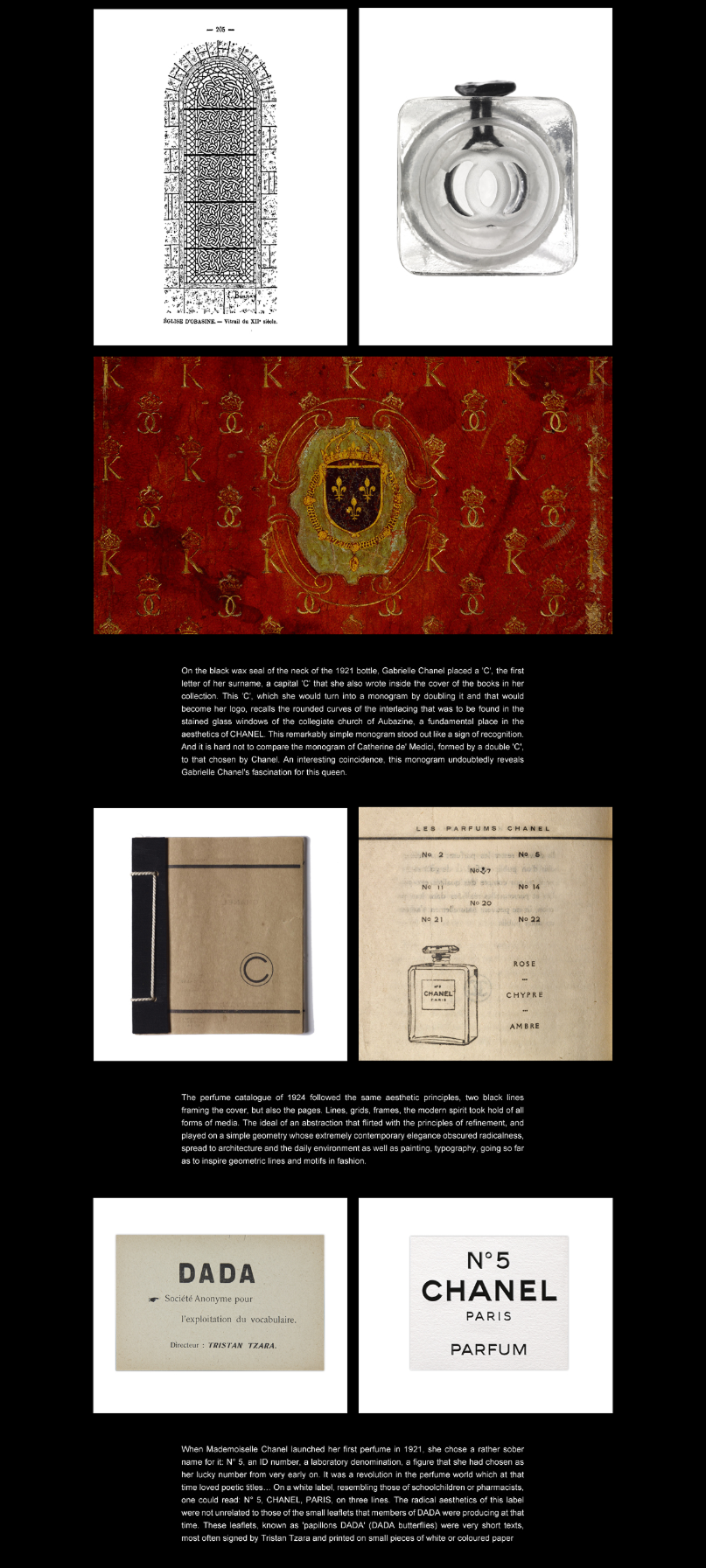
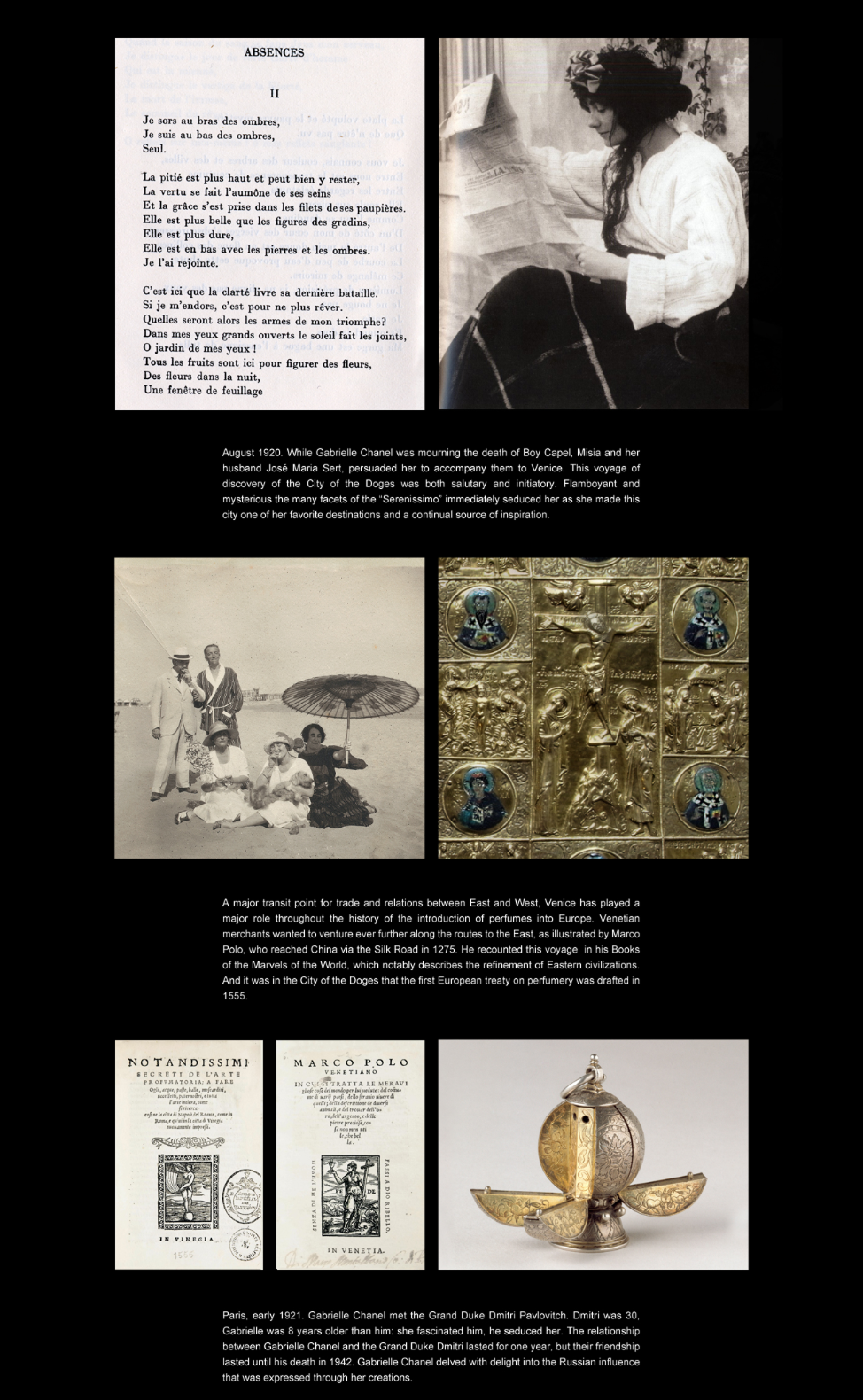


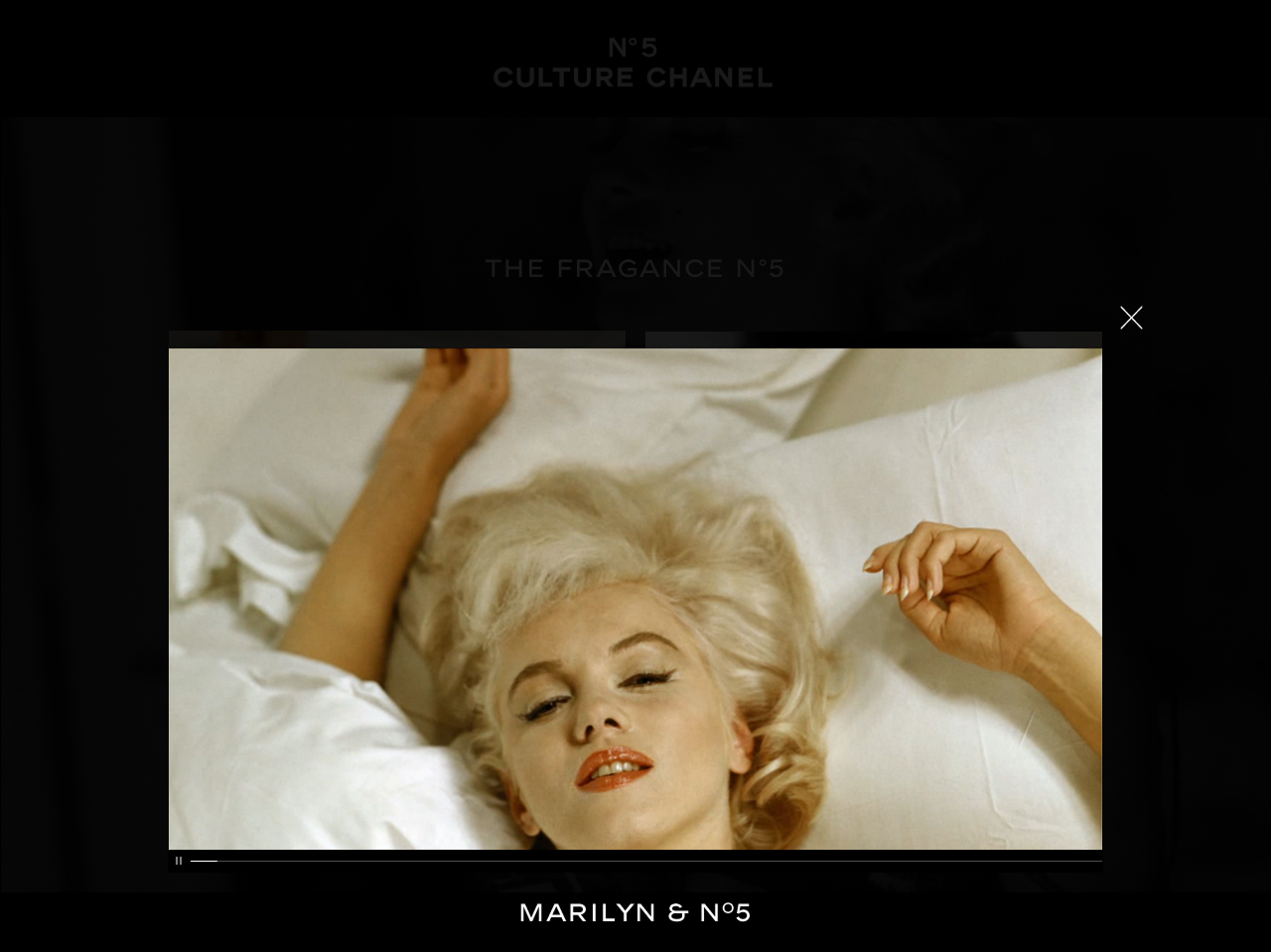
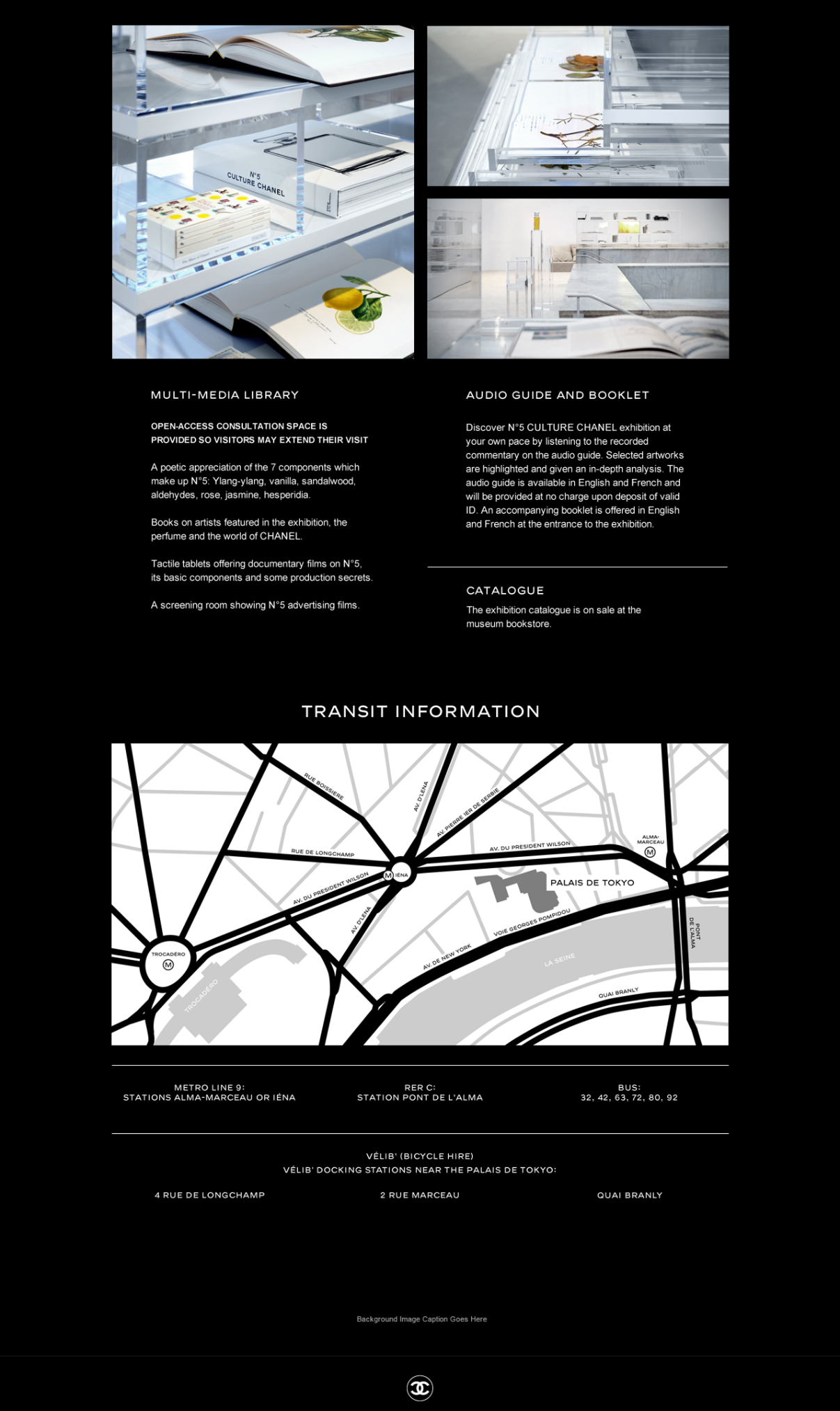
Design Brief
Website goals
Give an overview of the Exhibition
Preview the artwork from the Exhibition without creating an analog experience
Target audience
People who will travel to attend the Exhibition, mostly local in France
People who are interested in the subject matter – Chanel, N°5 fashion exhibits etc.
Information Architecture

The site was generally very non-linear.
The relatively collapsed content hierarchy (i.e. minimal page depth) allows users to jump between pages at any time, without following a particular path. Additionally, the high number of visits and pageviews to Home and Exposition support the understanding that many people used those pages as navigation hubs, rather than taking advantage of the “next/previous” buttons at the bottom of theme pages.
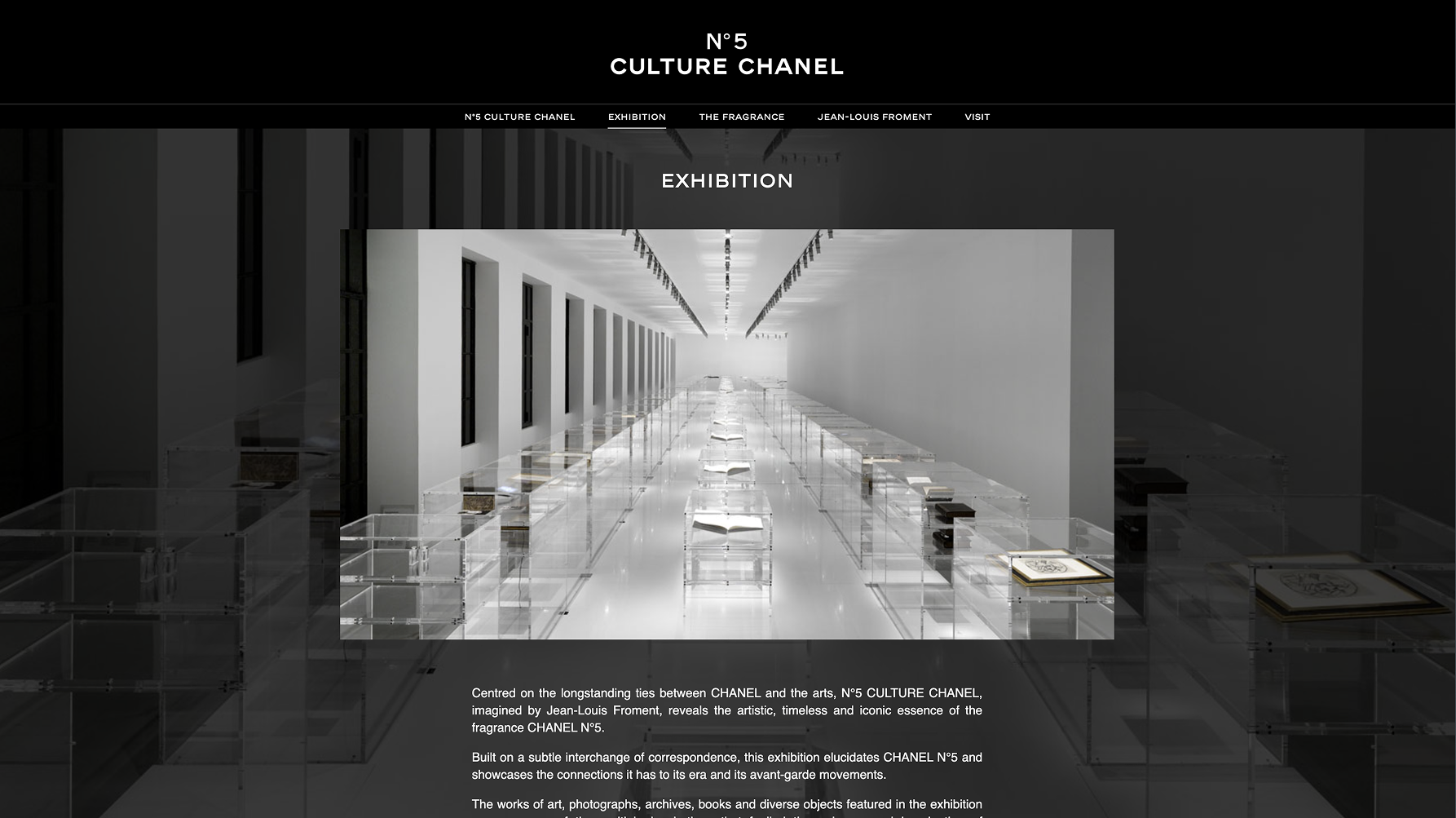
Overall, analytics indicate that our audience was able to view a considerable amount of the content, perhaps most importantly of which is the exhibit ‘overview’ page.
A contributing factor may be the fact that our audience was largely pre-interested in the site content, having arrived via chanel.com, palaisdetokyo.com or directly, reaffirming the website’s status as a support tool for the physical exhibit itself.
VOGUE France
Video feature about the opening of this exhibit.
Early work worth sharing
This was one of my very first projects as an Information Architect. I worked in a small studio team of a couple engineers, a visual designer, and a creative director, in addition to some of the more client-facing roles.
It's a bit funny to look back and see how sparce the wireframes are, almost an attempt at art to present to and inspire the client rather than a working document. It's also apparent how little I documented and saved around my thinking process and the iterations we went through.
That being said, I still think it's worth showing our beginnings because it shapes the story arc of growth we've followed as designers.
I used to think a portfolio should only show my best work. I've decided to tell you more about who I am.
